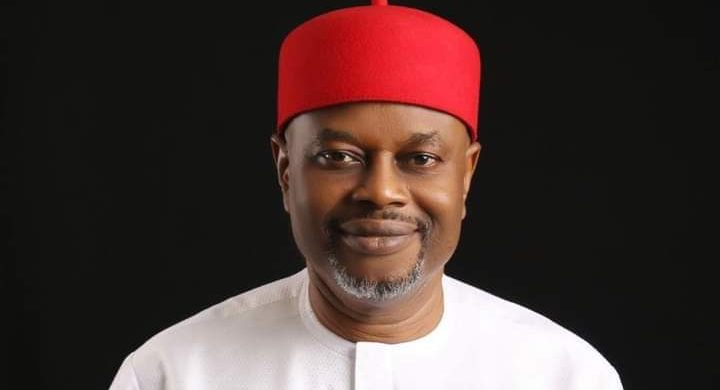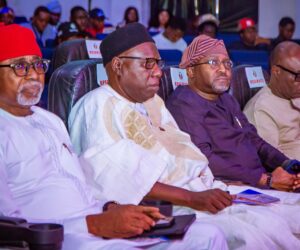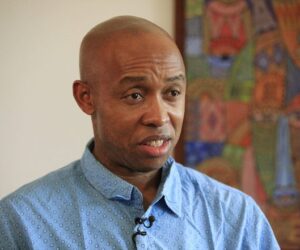1
As the political atmosphere in Nigeria thickens ahead of another electoral season, controversies are being stirred not by policy debates or governance performance, but by familiar attempts to discredit those perceived as political obstacles.
One of the latest targets was the Minister of Innovation, Science and Technology, Uche Geoffrey Nnaji. His academic credentials became the focus of intense public speculation. Yet, when the facts are weighed against the noise, it becomes evident that this was less about integrity and more about politics.
Contrary to the sensational headlines, there is substantial evidence supporting Nnaji’s academic history at the University of Nigeria, Nsukka (UNN). A letter from the university’s Registrar, dated December 21, 2023, clearly confirmed that “Mr Geoffrey Uchechukwu Nnaji, registration number 1981/30725, was admitted in 1981 to study Microbiology/Biochemistry and graduated in July 1985 with a Bachelor of Science, Second Class (Honours) Lower Division”.
This document was duly signed and officially issued by the registrar’s office, the competent authority for academic records at UNN.
Beyond that, a copy of the 1985 convocation brochure and photo album, which includes Nnaji’s name and image among the graduating class, further affirms his presence in that cohort. Several alumni of the department have also privately confirmed that he was indeed part of their class. These materials, when considered together, provide consistent and verifiable evidence of his academic completion.
The current uproar, therefore, raised uncomfortable questions about motive and timing. If UNN’s registrar had already certified Nnaji’s academic completion before his ministerial clearance, why was the matter resurfacing now, nearly two years into his service as a federal minister? What explains the shift in tone from the same institution that once confirmed his status in writing?
Sources familiar with Enugu State’s political landscape suggest that this controversy may not have been purely academic. With the state’s political alignments shifting and power blocs repositioning ahead of 2027, those who viewed Nnaji as a potential rival appeared determined to weaken his standing through orchestrated campaigns. It is not the first time Nigerian politics has weaponized institutions for convenience.
Through this entire period, Nnaji handled himself with calm. He sought clarification through lawful channels, presented evidence including that 2023 registrar’s letter and the convocation brochure, and did not resort to wild accusations himself.
Yesterday, under mounting public pressure and sustained allegations, Nnaji submitted his resignation as Minister. President Bola Tinubu accepted the letter. In his statement afterward, Nnaji said his resignation was not an admission of guilt but a mark of respect for due process. He cited that the barrage of unverified claims, media distortions, and what he described as political blackmail had begun to distract from his work and from the government’s agenda.
His resignation does not erase the evidence that supports his case. Nor does it validate all the claims against him. Instead, it underscores how political dynamics can force even a man who insists on transparency and who has produced documents in his favour to step aside in order to allow time for calm and thorough examination.
His decision to resign from office appears consistent with that same posture, a quiet act of principle rather than defiance. In doing so, Nnaji seems to have chosen integrity over noise, stepping aside to allow the facts to speak for themselves while removing any pretext for political distraction.
Whatever one’s political leanings, this episode raises deeper concerns about how fragile our institutions have become in the face of politics. When universities are dragged into political feuds, when registrars’ letters are selectively questioned, and when every past rival becomes a convenient target, the credibility of governance itself is weakened.
Uche Nnaji’s long trajectory from entrepreneur to public servant reflects a man who values discipline, intellect, and quiet efficiency. Those who have worked with him describe a technocrat who prefers solutions to drama and results to headlines.
In the end, Nigerians must ask: What changed between 2023, when UNN cleared Nnaji’s record, and 2025, when the same matter resurfaced? The answer, it seems, lies not in any missing file at Nsukka, but in the shifting sands of political ambition.
When the dust finally settles, it will be clear that this was never about certificates, it was about control. And as history often reminds us, truth has a way of outlasting politics.






